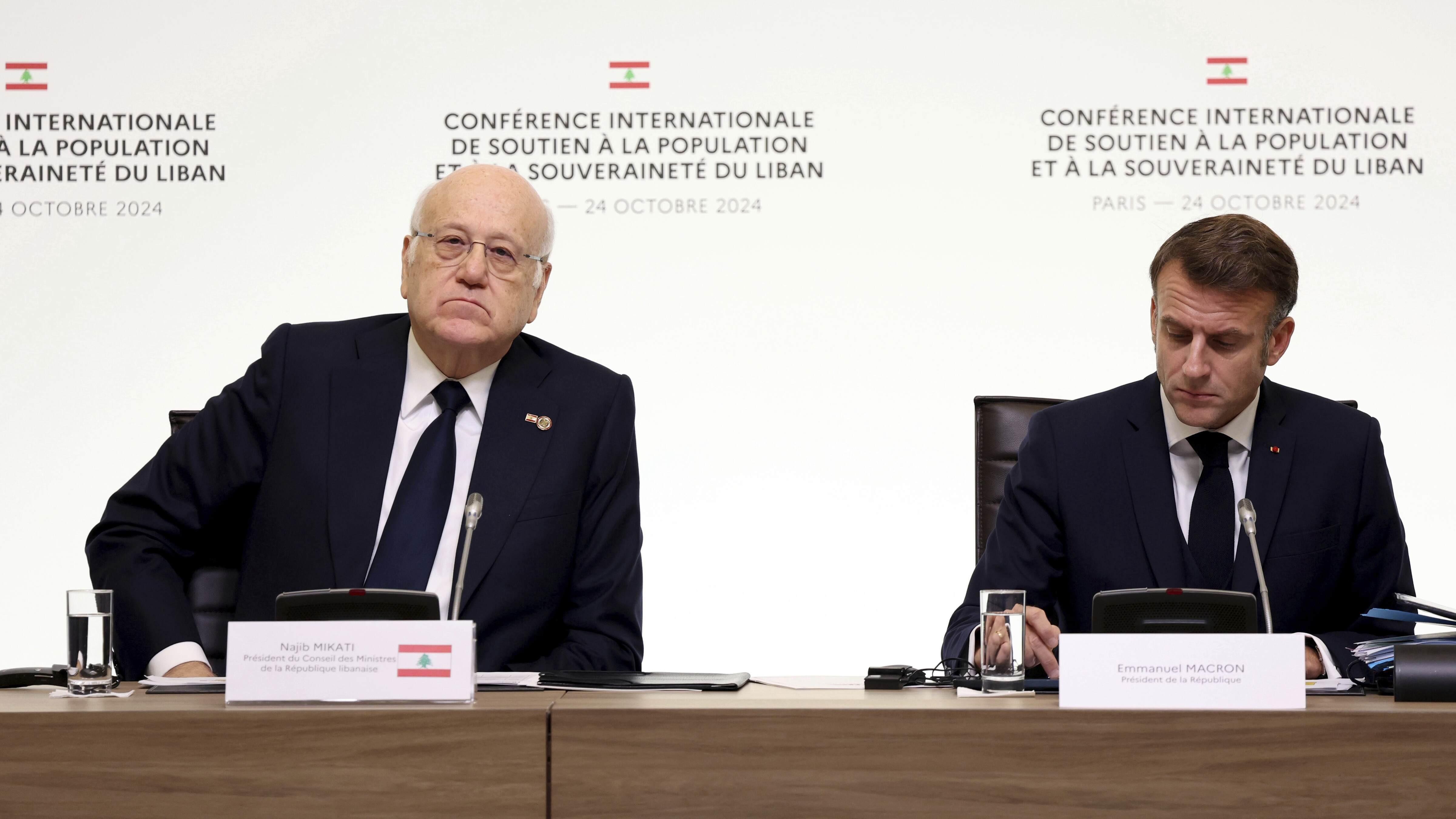
French President Emmanuel Macron said on Oct. 24 his country would support Lebanon with 100 million euros ($108-million), as Paris hosted an aid conference with big financial aims.
"The war must end as soon as possible, there must be a ceasefire in Lebanon," Macron said sitting alongside Lebanese Prime Minister Najib Mikati.
The Lebanese government chief in turn called on "the international community to hold together and support efforts... to implement an immediate ceasefire.”
France has set a target of raising half 1 billion euros ($540 million) in aid for Lebanon, 100 million more than an initial U.N. appeal during the conference, which gathered over 70 nations and international organizations.
As well as its financial contribution, Macron said Paris would "contribute to equipping the Lebanese army" to re-establish control of the country's south in line with U.N. Security Council resolution 1701, which sealed the end of the last Israel-Hezbollah war in 2006.
Germany said on Oct. 24 that it would contribute 96 million euros to the humanitarian aid appeal.
Speaking remotely, United Nations Secretary-General Antonio Guterres called on participants to "strengthen their support to Lebanon's] state institutions, including the Lebanese armed forces.”
Hopes for diplomatic progress in Paris may be stymied by the absence of Iran and Israel, who were not among the countries invited, while the U.S. was represented only by a deputy to Secretary of State Antony Blinken.
In Lebanon, on the other hand, the Israeli military hit Hezbollah weapons production facilities in the group's south Beirut bastion, in some of the fiercest strikes on the area since the Lebanon war began.
At least 17 raids levelled six buildings, according to Lebanon's official National News Agency, with a huge ball of fire enveloped in a tower of smoke soaring into the night sky.
The attacks came after Israeli Prime Minister Benjamin Netanyahu said that Israel had uncovered a plot by Hezbollah to attack his country via underground tunnels involving jeeps and missiles.
He told French broadcasters CNews and Europe 1 that had the plan succeeded such an assault would be been more damaging than the Hamas attack on Israel last year.